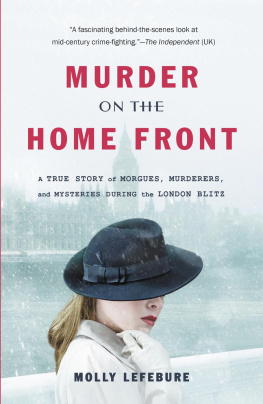What if the old love should return?
Horace
A TOWN CALLED Ulster in central New York west of the Hudson, but still closer to Albany than to Syracuse or Buffalo prospered briefly in the 1960s and 70s when IBM opened a regional sales division on the site of an old dairy two towns away. Ten minutes off the thruway, the abruptly thriving area wasnt long removed from its earlier life as farm country; most of the old sagging barns were bought up and knocked down to make way for new construction, but a few of the better-preserved ones were left on the vistas to go about the picturesque business of their own slow decline. They stand there today, swaybacked, holes punched in their steep roofs by years of snowfall; and the regional sales division has shut down. Roger Howe was offered a job there, a job that effectively represented the promotion which had not been forthcoming in his four years at the office in Westchester. He and his wife, Kay, with a small relocation allowance from the company and what remained of her inheritance from her father, moved upstate in the fall of 1970, when their son Richard was three years old, and Kay, though she didnt know it at the time, was pregnant with Molly.
The older homes in Ulster were well separated from one another, built for the most part on the apexes of the rolling, stony hills that had led its earliest settlers to hit upon livestock farming as their path of least resistance. A number of the IBM families, though, including the Howes, bought into a new development called Bulls Head, laid out at the wide end of a valley which narrowed toward the bald mountain that gave the venture its name. Roger and Kay, who were both twenty-eight and had never owned a home before, first saw Bulls Head on a Saturday in June, at an open house their realtor had scheduled from the hours of eleven to one. By the end of their first winter, when they had seen how the sunlight disappeared behind the mountain at around two in the afternoon, how the open end of the valley funneled perfectly the noisy, persistent winds that rattled the windows and leaked freely through all the casings, the house itself had become something of a sore subject, any mention of which seemed freighted with recriminations. Kay turned up the thermostat the moment Roger left for work in the morning; if she forgot to turn it down again before he came home, as she sometimes did, there were words. Downtown Ulster was an unplanned bloom of small enterprises the gas station next to the drugstore next to the bank next to the IGA which grew out of the towns main intersection but tapered off quickly to open land in every direction. In the evenings, a few minutes before each hour, the television antennas turned silently together like slow propellers atop the roofs in the valley.
A new building had to be erected one summer to hold the lower four grades of the burgeoning elementary school. From her first-grade classroom Molly could watch her brother Richard for forty-five minutes every day through the windows that faced on to the playground, unless the weather was too severe for recess outdoors. Her teacher noticed her staring out the window from time to time, though she didnt guess what the girl was staring at, and when it got too nettlesome she would make Molly bring her desk up to the front of the room for the rest of the day. It was a more effective punishment than she knew, for Molly was not a child who courted attention. She did not like her teacher, who seemed to feel so sorry for herself. The people Molly admired then were the members of her family, and her admiration often took the form of a kind of watchful daydream that she was one of them. At home she could sometimes be found, if Kay was on the phone or otherwise not to be disturbed, staring sleepily into the mirror above her mothers dressing table, or standing in the walk-in closet with her feet in a pair of her fathers impossibly wide leather shoes.
Her room was painted white, with white blinds over the window, and a small bright bullseye throw rug on the cold wooden floor beside her bed. One wall was painted with a nursery design, the cow jumping over the moon, the laughing dog, the dish running away with the spoon; Kay had meant to stencil the whole bedroom that way, but she had gotten that far and no further. It was one of those subjects the children knew without being told was best not brought up. There was a nightlight shaped like an old gas lantern in the baseboard outlet in the hallway.
Molly was out of school more than most kids, sometimes because she was sick and sometimes only because she felt she might be; it was never difficult to persuade her mother to let her stay home. Kay preferred her daughters company to the treadmill of housework: and beyond that she was cultivating Molly, dreaming of the day her daughter would be old enough to rely on as a kind of ally of perception, to see as her mother saw the great unfairness which lived behind the wasting mundanity of everyday life in that house, in that town; this, Kay believed, was what would save her from going crazy.
Mollys eyes were a pale blue, and their lashes, darker than the auburn shade of her hair, were unusually long. Kay Howes few Ulster friends, who dropped by in the late mornings to slander their husbands for bringing them there, would stare at Molly in a way which was so invasively adoring that it didnt feel friendly at all, and say to Kay: The girl is such a beauty. You shouldnt waste it. You shouldnt. She should be on TV.
You think? Kay would say, looking at her daughter with a skepticism intended as modesty.
Oh my God yes. What is she, six? Put it this way. A girl that gorgeous now, in ten years shell be making your life miserable. Every boy in this town will have his face against that window. So you might as well get some advantage out of it while you can!
They all laughed, without softening their aggressive faces; Molly played quietly or turned the pages of a book, accustomed to being talked about in her presence. Later, when they were gone, she would climb into the chairs and look for the mysterious pale pink outlines the womens lips had left on their cigarettes.
Then one winter afternoon Kay fanned a dozen photographs of her daughter across the kitchen table, lit a cigarette, and moved them around like a puzzle. There were phone calls in which Mollys name was used, and spelled, and later there would be a trip to Mahoneys for a new dress. Kay wore an odd expression during those phone calls, a reactive, polite, charming expression, as if whoever was on the other end of the phone could see her face. Auburn, she said into the receiver, suddenly returning Mollys stare. Blue. Five/thirteen/seventy-one.
A week later, Kay watched from the front porch until the school bus had come for Richard, then went back into the house and began putting on makeup. Molly observed from her parents bed. When Kays face was perfect though there was nonetheless something unsettling, for Molly, in seeing this glamorous nighttime rendering of her mother at eight-thirty in the morning she turned from the mirror and focused her attention on the girl. An hour later they were driving much too fast to the train station, Kay looking testily from the road to her watch to Mollys rouged, pouting face.
Other girls love to get all dressed up, Kay said, not in a conciliatory way. When I was a girl, I begged my mother to help me get all dressed up. I liked looking pretty for other people.
It was true that Molly hated being out of play clothes, and especially hated having her hair manipulated and powder put on her face. But perhaps it was also true what her mother told her that she was unlike other girls because when the two-and-a-half-hour train trip was finally over and the secretary at the casting agency opened the door to the room in which they were to wait, there were thirty other girls sitting nicely in pretty dresses with ribbons or bows or combs of some sort in their hair. It was a larger group of girls her own age than Molly had ever been part of before; even birthday parties in Ulster couldnt convene this many children. The room was crowded with folding chairs. The secretary shut the door behind them. There was a good deal of friendly talk in the waiting room girls to girls, mothers to mothers but no one moved from her seat. Molly found an empty chair; Kay silently made her get up to smooth out her jumper properly before sitting down again.










